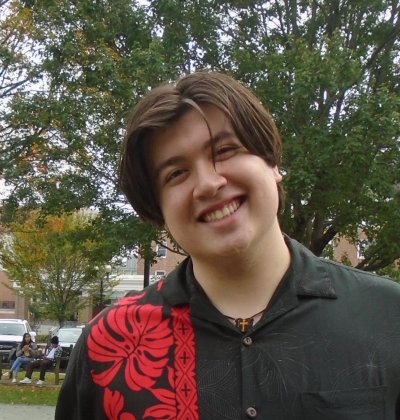
Breaking It Down: Picking Classes at Dartmouth
Picking classes at Dartmouth can be an experience that ranges from an absolute joy to honestly somewhat intimidating. Dartmouth has more academic departments than I'm capable of remembering and an accompanying army of classes to boot, which begs the question: how does one even start?
There are three major elements, in my humble opinion, to be considered when picking classes. I've found myself deciding how I spend each of my terms by weighing each of these equally, and so far, they haven't failed me yet! This post will go over what I think goes through my mind during every course selection process, and I'll show you my pretty campus on the way.
- No. 1
Interests
My interests are easily one of the driving factors behind any course decision. To find classes that simply sound interesting, I tend to start with the academic departments I've come to know and love. The course catalog always has a few classes that, from the onset, sound like they touch on something fascinating. Your interests are your passions: use them! Even if it's a harder class, prior knowledge and love of certain subjects is a great compass to use when you're trying to find classes on your favorite things. Even if they're challenging, rising to the challenge is something we do for the things we love -- no better motivation to study than self-motivation.
None of the classes I've selected based off their course title, surprisingly, have ended up anything less than fantastic. I either have good luck or Dartmouth is good at titles -- either way, it never hurts to have a class you're actively excited for as part of your term. Dartmouth students typically take three classes per term, which gives you a lot of flexibility in choosing classes. For myself, I actually picked all three of the classes I took during my freshman fall based on my interest alone; I didn't let my prospective major or anything else get in my way, and I ended up finding the departments I want to major in instantaneously. Be spontaneous!
- No. 2
Major
By the time you get to campus, it's very likely that you'll have a major in mind. That's awesome! At Dartmouth, you don't have to declare a major until the end of the your fifth term, which gives you plenty of time to explore based off of your interests, or do what's tried and true and take a class in the major you had already looked at prior to becoming a Dartmouth student or simply a field you've dreamed of taking classes in forever. Regardless, after my first couple terms, my major was a constant consideration; even though I knew, as a freshman, that I didn't need to declare my major until later, I wanted to work steadily through the classes that would later constitute my major and I'm really happy that I did.
Every major (and minor!) at Dartmouth has a different set of requirements, and some majors might have more prerequisite classes (we just call them 'prereqs') that you need to take before you can start taking classes that apply to the major. Often, Dartmouth students take their prereq classes early on so as to be able to jump on their major classes as soon as possible. Always a great consideration to make!
- No. 3
Distributives
If you've been keeping up with my blogs, or honestly if you've read anything about Dartmouth, you're probably intimately familiar with the notion of the liberal arts, or about the flexibility involved and the exploration encouraged. Dartmouth has a very open curriculum, and the way that the school encourages you to try new things is through the use of distributive requirements. Basically, distributive requirements are "types" of classes, and to fulfill your degree at Dartmouth, you need to fulfill every distributive requirement. Distributives range from classes tackling quantitative and deductive science (QDS), international or comparative study (INT), literature (LIT), or art (ART).
If you're anything like me, something like QDS can sound pretty intimidating; I have never once shied away from even suggesting the idea that I could be a STEM person. But the best part about Dartmouth is how easy it can be to fulfill these distributives even in subjects that are pretty removed from your interests. I ended up fulfilling my QDS distributive through my first linguistics class -- why? Linguistics involves a lot of data analysis and deductive science, so even though it isn't a math course, it counts! And ART? I took a creative writing class! Dartmouth is flexible, and more than anything, the distributives encourage you to make your own Dartmouth experience, and though I might gripe, I've learned a fascinating amount simply from trying to fulfill my distributives through classes that sound interesting.


















